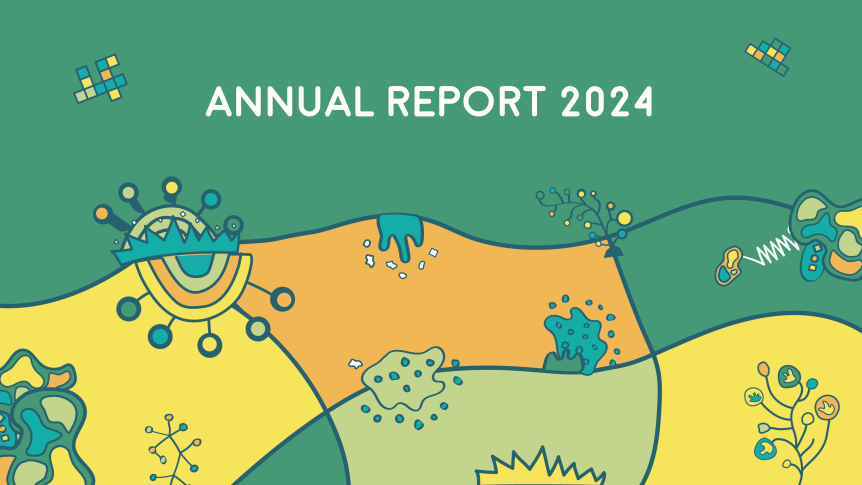
Our latest annual report is out, highlighting the impact of APC’s community throughout 2024 – our first year of implementing a new strategic plan guiding our work through to 2027. The report shows our community taking action and shaping technologies for social, gender and environmental justice.
But how does all this translate into practice? This is the third in a series of news pieces where we are sharing some concrete examples, organised according to the four outcome areas of our strategic plan, which focus on creating impact on ourselves and the world. Here, we invite you to continue reading about how we are collectively shaping digital standards, policies, processes and norms.
We actively sought to influence global policy processes that will shape our digital future. Working with our allies in the Global Digital Justice Forum, as well as others, APC engaged key global processes that will set the terms of engagement for digital advocacy and rights over the coming years, in particular the Global Digital Compact and the WSIS+20 review. We linked these processes to our work at the Internet Governance Forum, pushing for a renewal and expansion of its mandate in the face of an increasingly dominant big tech sector.
African policy makers institutionalised multistakeholder approaches in digital governance after attending the African School on Internet Governance (AfriSIG). In 2024, African parliamentarians and regulators adopted multistakeholder methodologies for internet policy development as a result of AfriSIG’s practicum, which focused on collaborative policy making on the African Continental Free Trade Area Digital Protocol and African Union Data Policy Framework. AfriSIG resulted in the production of an output document that sets out concrete steps for advocacy in internet governance spaces. Furthermore, African civil society organisations integrated the African Union Data Policy Framework into local advocacy.
We worked to frame cybersecurity from a gender perspective. Through statements and other interventions, we pushed for a human and gender rights perspective at the Open-ended Working Group on cybersecurity, and convened a diverse group of experts on cybersecurity to advocate for a gender framing of cybercrime responses. A roundtable of experts in feminist technology, cybersecurity governance and technical standards sought to better understand the intersections between gender rights and cybersecurity, and to map an advocacy way forward for civil society.
We advocated for gendered disinformation to be prioritised in policy discussions. While gendered disinformation has been understood as a subset of tech-facilitated gender-based violence and online disinformation, we have pushed for the need for it to be recognised as a separate and specific phenomenon through submissions, publications and other interventions. In support of this work, we launched the Full Picture campaign to help journalists and communications professionals understand the impact of misinformation and disinformation on people’s lives.
The UN Global Digital Compact (GDC) integrated a stand-alone principle on gender equality that was absent in earlier drafts, due to sustained APC-led advocacy efforts. APC co-created 10 feminist principles for the GDC, founded and facilitated a civil society coalition for gender inclusion, and leveraged momentum from the Commission on the Status of Women to push forward demands, creating more possibilities for gender justice in digital governance frameworks.
Several policy forums in the Global South integrated discourse on tech-facilitated gender-based violence from peripheral to central agenda items.

APC members were able to influence their governments on digital rights issues through the Universal Periodic Review process. APC coordinated the development and submission of four stakeholder reports to the United Nations Human Rights Council under the Universal Periodic Review (UPR) process in four countries: Costa Rica, the Democratic Republic of Congo, The Gambia and Kenya.

APC worked with the United Nations High Commissioner for Refugees (UNHCR) on a regional strategy to counter misinformation, disinformation and hate speech targeting Rohingya refugees in South and Southeast Asia. Not only did the UNHCR adopt the framework, but we also continue to support them to implement some of the strategies it proposes, especially in countries with elections coming up.